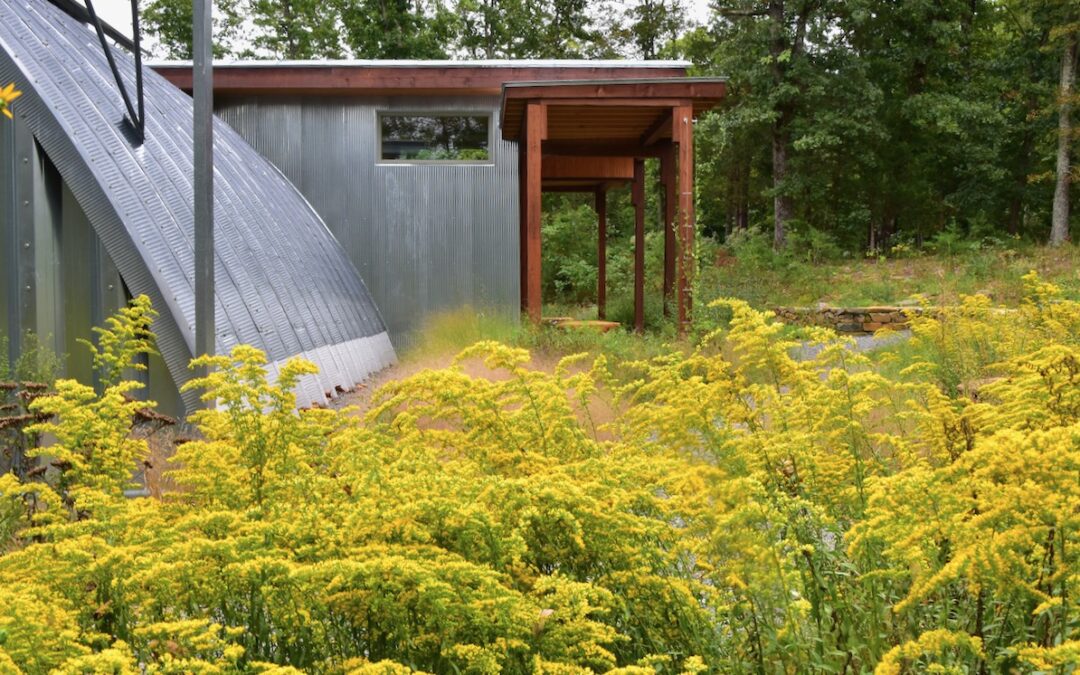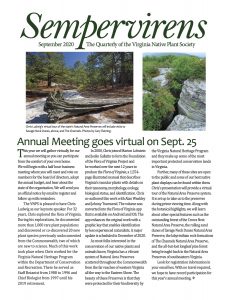
The Golden Season
The Digital Atlas of the Flora of Virginia lists 21 species of goldenrod (Solidago) native to Nelson County. Twelve may be found at The Quarry Gardens, blooming from mid-summer through October. Early goldenrod (Solidago juncea) is blooming now. The featured image of Showy goldenrod (Solidago speciosa) was made in September.
Goldenrods produce pollen too heavy to be carried by wind. Studies by University of Delaware entomologist Doug Tallamy have found that they provide food and shelter for 115 butterfly and moth species in the Mid-Atlantic alone. In fall, monarch butterflies depend on them for nectar to fuel their long migrations, and in winter songbirds find nourishment in the seed heads. Historically, goldenrods have been used in folk medicine. The name, solidago, means “to make whole.”
Except for a few, such as Sweet goldenrod (Solidago odora) which smells like anise, and Silverrod (Solidago bicolor) which is actually white, they are not easy to tell apart. That’s why we’re glad to have a key to the species, prepared by Devin Floyd and Drew Cheney of the Center for Urban Habitats; we’ll happily share it with you when you visit. We promise, none of our goldenrods will make you sneeze. That’s likely to be ragweed; its light pollen travels on the wind for miles.

